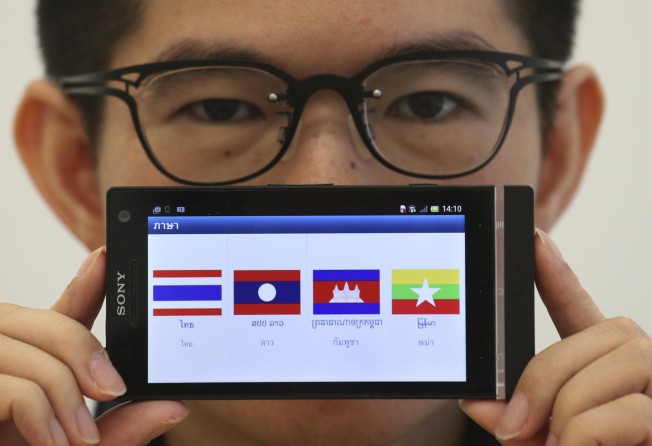App from NGO the Mekong Club being used to fight human trafficking

A Hong Kong anti-slavery group is hoping technology can help tackle human trafficking in the region, as its new smartphone app is already being used by police and NGO workers across Southeast Asia to communicate with potential victims.
The Mekong Club, a non-profit organisation that aims to harness the skills of the private sector to combat human trafficking, teamed up with Sha Tin-based app designer MotherApp to build the programme.
"The goal of this tool is to demonstrate that technology solutions can be identified, tested and used to help address the human trafficking problem," said Matthew Friedman, head of the Mekong Club.
Key features of the app are prerecorded video questions in four languages - Thai, Burmese, Lao and Khmer - that cover details such as whether the person has had their passport taken from them, what sort of conditions they live in, if they are entitled to days off and if they are paid.
The app was tested by police and NGO workers in Thailand last July in four areas: Bangkok and nearby Samut Sakhon, Chiang Mai in the north and Songkhla in the south near the border with Malaysia.
It aims to address the language barriers faced by anti-trafficking and marine police officers, staff from special investigations departments and local NGOs when they first come across possible victims.
The app was used by about 100 people, with one in five identified as someone who had been trafficked.
"While there is no substitute for a detailed translation, this approach allows us to identify which migrants might need help immediately," said a staff member with the Thailand-based Labour Rights Promotion Network. "In the past, many … were not reached because of not knowing where they were from or how to communicate with them."
It took several months to fine-tune the app, including deciding what questions to ask as well as fixing hardware issues, said Ken Law, of MotherApp. A specific model of smartphone was chosen as it has better speakers, which was necessary when conducting interviews in factories.
After the app was field tested, the police and NGO workers provided some valuable feedback such as the need to include more dialects, as some victims from Myanmar hailed from remote areas, as well as a range of simpler questions for children.
According to the Global Slavery Index, some 35 million women, men and children endure forced labour or sexual slavery. More than half of these victims are in Asia.
In the 2014 Trafficking in Persons Report from the US State Department, Hong Kong was identified as a "source territory" as well as a destination and transit point for trafficking.